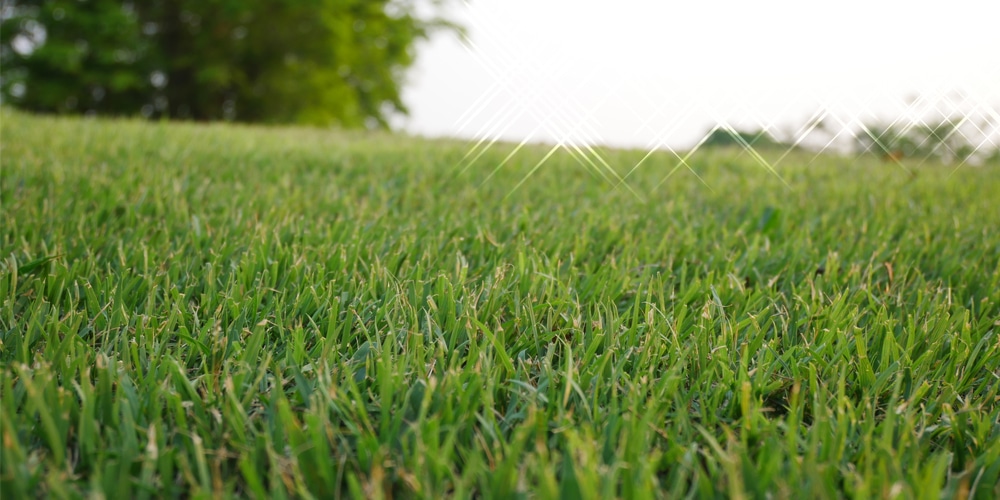Bermuda grass is a hardy, warm-season grass which is commonly used in lawn throughout America. While it does best in warmer states, it is robust enough to cope with colder weather. The advantage of having a Bermuda grass lawn is that it’s a drought-resistant variety of grass.
If you’re thinking of planting Bermuda grass, overseeding, or laying Bermuda sod, you’ll want to plant at the right time of year to ensure your lawn has the best chance of survival. Planting in the spring or summer will allow your lawn to develop a healthy root system that will enable it to thrive before the cold winter days arrive.
Let’s look at the best time of year to plant Bermuda grass. We’ll also give you some tips that will help your Bermuda lawn thrive!
Bermuda grass is a warm-season grass that is best planted in the early spring or summer
What’s the Best Time of Year to Plant Bermuda Grass?
Bermuda grass is a warm-season grass that is best planted in the early spring or summer. Warm-season grasses grow better in a warm climate and are great for states with warmer summers and mild winters.
Bermuda grass can be planted in the early spring when the weather starts to improve. In early March or April, the daytime temperatures rise to above 65°F. This is the perfect time to plant Bermuda seeds, overseed your lawn or lay Bermuda sod. Planting at this time of year will allow the grass to benefit from the warmer weather. The grass will be able to grow and establish a good rooting system throughout the growing season from May to September. By the time fall and winter arrives, your lawn will be well established and will be able to tolerate the colder weather.
Warm-season grass such as Bermuda will thrive in warm/humid and warm/arid climate zones. Bermuda lawns will so well in states such as Alabama, Hawaii, and Louisiana. Although Bermuda is a warm-season grass, it does also do well in cooler states as it’s a very robust variety of grass. In fact, it’s so robust that it’s often found on golf courses.
If you decide to plant Bermuda in a cooler climate, you should still sow the seeds in the spring as they will be able to grow over the spring and summer when the temperature is warmer. Here’s how to make Bermuda grass even thicker.
Before planting Bermuda grass, you should also take the local growing season and weather conditions into consideration. For example, if you live in an area that’s prone to spring storms, wait until these have passed before planting grass seed. A little rain can help your grass seeds to germinate, but a heavy rainstorm will wash your seeds from the ground. If you are laying sod, you can lay it over grass.
If you live in a scorching and humid climate, it’s best not to plant Bermuda during a drought. While Bermuda is drought resistant, it’s not a good idea to plant seeds in scorching weather as they won’t be able to establish themselves.
What to Expect After Planting Your Bermuda Grass
After plant Bermuda grass seeds, you’ll start to see new sprouts after approximately two weeks. Some grass shoots may only take a few days to appear, depending on the climate and soil conditions. If, after two weeks, only a few grass seeds have started to grow, it may be a good idea to reseed and water the seeds adequately. It’s essential to irrigate your yard frequently when planting Bermuda seeds as they require enough water to grow.
You should also avoid walking on new sod, newly seeded areas, and patches that have been overseeded. Bermuda grass requires moist, loose soil to grow, so avoid compacting the ground. Ensure that you give your new lawn plenty of water in the first few weeks and provide fertilizer regularly. A good fertilizer can really help Bermuda grass thrive.
You may also like to consider putting a top layer of compost on the ground before planting your Bermuda grass seeds. Compost will add nutrients to the soil, which will help feed the new grass shoots. It will also stop the ground from becoming compact.
Conclusion
It’s best to plant Bermuda grass in early to late spring or during the summer. You’ll need to take into account the climate in the state you live in, as well as the weather conditions at the time. Don’t plant Bermuda grass, lay new sod, or overseed if the weather’s very cold, if storms are forecast or if there’s a heatwave. Abnormal temperatures will affect Bermuda grass seeds and mean that they will be less likely to germinate.

